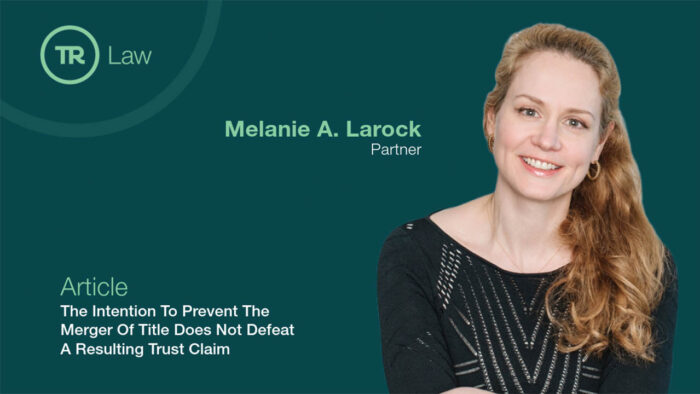The End of the Practice of Reviewing Draft Expert Reports
Author(s): Darcy R. Merkur
April 2, 2014
Counsel’s practice of reviewing draft expert reports must stop and meetings between counsel and experts to review draft expert reports are no longer acceptable, according to the January 14th decision of The Honourable Madam Justice Janet Wilson in Moore v. Dr. Tajedin et al (2014) ONSC 237 (Ont. Sup. Crt.).
In Moore, the plaintiff had developed compartment syndrome and claimed it was as a result of negligent medical treatment he received on his fractured wrist following a motorcycle accident.
Like many experts, the defence medical expert had prepared a draft report and had sent it to his counsel for comments.
In reviewing the defence expert’s file at trial, plaintiff’s counsel found the draft reports as well as the defence expert’s notes in relation to a one-and-a-half hour telephone conference between the defence expert and defence counsel regarding the draft report.
While the defence expert suggested the changes made to the report were slight changes such as headings and punctuation, Justice Wilson concluded that the meeting between the expert and his counsel addressed more than simply superficial cosmetic changes. In fact, Justice Wilson notes that some content helpful to the plaintiff was deleted or modified. Justice Wilson concludes that, while the expert’s opinion was not changed as a result of discussions with their counsel, it was certainly shaped by defence counsel’s suggestion.
Justice Wilson takes great issue with the common approach by counsel to review draft reports. Justice Wilson states:
“For reasons that I will fully outline, the purpose of Rule 53.03 is to ensure expert witness’ independence and integrity. The expert’s primary duty is to assist the court. In light of this change in the role of the expert witness, I conclude that counsel’s prior practice of reviewing draft reports should stop. Discussions or meetings between counsel and an expert to review and shape a draft expert report are no longer acceptable.” (paragraph 50)
With respect to the issue of how counsel may be able to appropriately give feedback to an expert on a report, Justice Wilson suggests any such feedback must be in writing and must be disclosed to the opposing party:
“If after submitting the final expert report, counsel believes that there is need for clarification or amplification, any input whatsoever from counsel should be in writing and should be disclosed to opposing counsel.” (at paragraph 51)
Justice Wilson states her view that Rule 53.03 precludes meetings between counsel and an expert in relation to a draft report since such meetings lead to a perception of bias or actual bias and puts counsel in conflict as a potential witness. Justice Wilson states:
“The practice formerly may have been for counsel to meet with experts to review and shape expert reports and opinions. However, I conclude that the changes in Rule 53.03 preclude such a meeting to avoid perceptions of bias or actual bias. Such a practice puts counsel in a position of conflict as a potential witness, and undermines the independence of the expert.” (paragraph 298)
To comply with Justice Wilson’s comments, counsel will now have to receive the expert’s final report without having reviewed a draft and then, if necessary, write to the expert requesting any clarification (while disclosing any such letter to opposing counsel as an attachment to any addendum report).
With the inability to review draft reports, counsel will only engage experts they know to be extremely familiar with expert report writing and the complexities that come along with it—which include an understanding of the various complicated causation and legal tests (such as the ‘permanent and serious’ threshold for motor vehicle cases, as defined, and the various causation and entitlement tests).
While Justice Wilson’s reasoning on this issue appears to have the commendable goal of ensuring experts can freely voice their unbiased opinions without interference or pressure from the retaining lawyer, Justice Wilson’s comments may have the unwelcome consequence of forcing counsel to rely only on experienced professional med/legal experts—experts counsel knows will use the correct lingo. Perhaps the hazards of reviewing draft reports are best addressed through effective cross-examination.
View PDF version: ABR Updater | Issue 19 | April 2014
Darcy Merkur is a partner at Thomson Rogers in Toronto practicing plaintiff’s personal injury litigation, including plaintiff’s motor vehicle litigation. Darcy has been certified as a specialist in Civil Litigation by the Law Society of Ontario and is the creator of the Personal Injury Damages Calculator.
Share this








